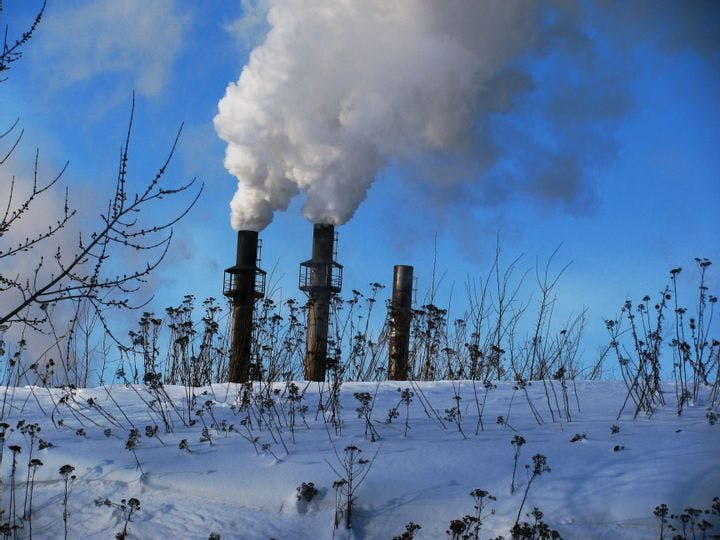Fall 2009
War and Warming
– The Wilson Quarterly
Climate change has greater implications for national security, and the intelligence community is taking notice.
There are critics who still dismiss climate change as the obsession of polar bear fetishizers and SUV hatemongers, but a significant group has begun to take it seriously: high-level military, diplomatic, and intelligence professionals in the United States and abroad. Their interest may get governments off high center and signals “the dawning of a new era,” writes Geoffrey D. Dabelko, director of the Environmental Change and Security Program at the Woodrow Wilson Center.
“Since I began working in the environmental security field 19 years ago, climate change has never drawn this much attention from the security community,” he writes in the Environmental Change and Security Program Report. “We are flooded with reports from foreign-policy think tanks, military strategists, and scientists around the world on climate.” In an assessment earlier this year, director of U.S. national intelligence Dennis Blair warned, “The intelligence community judges global climate change will have important and extensive implications for U.S. national security interests over the next 20 years.” UN secretary-general Ban Ki-moon has cited climate change, desertification, and conflicts between pastoralists and agriculturalists as underlying causes of the genocide in Darfur.
Top of mind in the security community are rising sea levels, increasingly frequent and severe weather events, shifting disease vectors, and smaller crop yields. Climate change may also have important indirect effects—for example, changes in human migration patterns as people follow resources or seek to escape environmental degradation. Other threats include shifts in natural resource patterns (as when rivers dry up) and access to sea-lanes. Reductions in Arctic sea ice, for instance, have opened new waters to navigation and increased tensions among Canada, Russia, the United States, and other nations with Arctic interests.
For security professionals, the fact that climate change isn't thoroughly understood is no barrier to action. Military strategists and planners must make decisions all the time based on partial information, and they are well versed in planning for worst-case scenarios. Still, Dabelko points out, they are accustomed to problems that involve borders, the use of force, and a zero-sum mentality, and may have to adjust their thinking to plan for climate threats.
While the new attention to climate change may be the answer to some environmentalists’ prayers, it also opens the door to exaggeration and hyperbole. Terms such as “climate wars” shouldn't have much place in the discussion, Dabelko writes. Climate change may exacerbate conflicts, but the mainsprings of wars are still politics and economics. In fact, localized fighting erupts because of environmental factors far more often than cross-border conflicts do. Sloppy thinking about the effects of climate change could also serve to excuse the actions of violent regimes, as in Darfur. And heated rhetoric distracts attention from long-existing natural resource problems and conflicts, especially in poor and developing countries. Finally, Dabelko says, the West’s fear of mass migrations from distressed developing countries is likely overblown. Research suggests that most movement will be South-to-South and within countries, following established country-to-city pathways.
Climate mitigation efforts carry their own hazards, as when, for example, soaring demand for corn-based biofuels led to painfully high food prices that sparked riots in Mexico. Act, Dabelko cautions, but don’t overreact.
* * *
The Source: "Environmental Security Heats Up," in Environmental Change and Security Program Report, Issue 13, 2008-09, "Avoid Hyperbole, Oversimplification When Climate and Security Meet," in Bulletin of the Atomic Scientists, August 24, 2009, and "Planning for Climate Change: The Security Community's Precautionary Principle," in Climatic Change, September 2009, all by Geoffrey D. Dabelko.
Photo courtsey of Flickr/Billy Wilson
